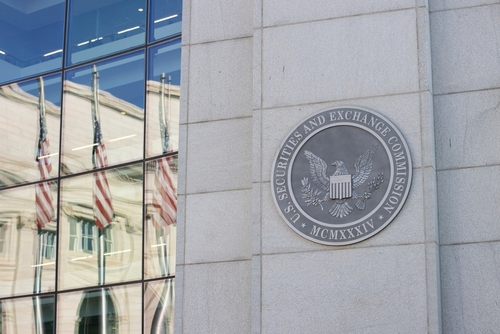
This paper takes a look from a bird’s eye view at the potential impact the Coronavirus (COVID-19) will have on contemplated fundraising efforts of fund sponsors as well as existing private closed-ended funds and examines certain areas and terms related to fund operations which may be revisited, reviewed and recalibrated in view of the unfolding global health crisis and market turmoil currently taking place. As the situation is rapidly changing, some of the matters discussed below may become irrelevant and other issues may undoubtedly arise.
Current Climate
Since the outbreak of the infectious disease, we are already witnessing a significant slowing down or total halt in production and consumption around the globe, major disruption to supply chains, the transportation of goods and the supply of services, the cancellation of events, and the imposition of sweeping travel and public gathering restrictions.
The entanglement of the VC industry with the general economic climate raises significant concerns about adverse effects the outbreak of the COVID-19 virus will have on the VC industry and investment landscape.
Travel bans, office closures, quarantines and lockdowns worldwide are making it practically impossible for fund managers and investors to hold in-person meetings that are often crucial to locking in investments (especially for first-time or smaller fund managers) and, thus, hindering fundraising efforts.
The widespread implications call for a pro-active mentality of fund managers. Let’s have a closer look at certain areas that may be examined by fund managers in order to assess fund operations and manage certain potential risks in this chaotic environment.
Review of Fund Terms
Expand Investment Strategy: Fund managers may want to consider broadening their investment mandate, given the changing economic environment. The current situation may call for flexibility and diversification relative to the fund’s investment focus. Since innovative technologies are likely to gain traction during these tumultuous times, fund managers may want to seek new opportunities in certain technology arenas which might experience an upward trend in the current climate, such as – remote work and distance learning solutions, SaaS, telemedicine, health-tech, etc. Distressed opportunities will become more prevalent as it is expected that many companies will be unable to weather the economic downturn affecting their businesses as a result of the pandemic. Fund sponsors should review fund documentation delineating the fund’s investment focus and strategy as well as investment limitations (e.g., related to investment concentration, recycling and follow-on investments) and seek approval of the LP Advisory Committee or required majority consent of LPs, in order to pursue new opportunities, reshuffle the fund’s investment objectives or deviate from prescribed investment restrictions.
New Risk Factors: Fund managers may wish to consider adding the outbreak of the coronavirus as a “risk factor” in their offering documents, i.e. – the coronavirus pandemic might likely result in a general economic decline and have an adverse impact on the fund’s investments, or the ability to source new investments or to realize its investments, in particular if such pandemic persists for an extended period of time or continues to spread globally. In addition, industry/ sector-specific risks factors will likely need to be included to address investments in industries/sectors (e.g., travel, hospitality, entertainment, etc.) which are more vulnerable to the negative consequences of the pandemic on their business model.
Extension of Offering Period: With impending delays, fund sponsors may want to consider extending the fund’s offering period beyond the customary 12 or 18 month period. In order to do so, funds may have to turn to their LP Advisory Committees for approval or obtain the required majority consent of LPs.
Extension of Investment Period: In a similar vein, fund managers may want to consider extending the period of time for making investments in new portfolio companies for an additional period of 6 to 12 months, subject to gaining the required approvals under the fund governing documents.
Extension of Term of the Fund: It may be advisable for managers of existing funds nearing the end of their term to consider a potential extension of the term of their fund so as to provide the fund’s portfolio companies with additional time in order to better withstand a prolonged economic slowdown and to be able to increase in value, in lieu of effecting fire sales of portfolio holdings.
Failure to make Capital Contributions: Certain LPs might have more difficulty in meeting their funding obligations due to potential constraints in liquidity and cash-flow. The fund manager should carefully review the default and remedy provisions in the fund documents in order to maximize the chances that the GP will be able to enforce capital commitments, or replace the lost capital with capital contributions from other existing investors or third party sources. In light of the current circumstances, we might see an increase in requests from LPs directed to the GP to extend the grace periods under the fund documents in order to meet their financing obligations.
Increased Use of Credit Facilities: In light of the current economic environment and potential delays in meeting capital calls, fund managers may want to profit from lower interest rates and seek alternative forms of financing. GPs should review and pay attention to borrowing limitations prescribed under the fund documents.
Warehousing Provision: Fund sponsors should consider incorporating in their fund documents warehousing provisions allowing the GP or its affiliates to warehouse investments while a fund is in its offering period or in anticipation of forming a fund vehicle in more stable and favorable marketing conditions. Sponsors who believe there is a window of opportunity in their targeted sectors or technologies may seek to exploit such opportunity for the benefit of the future fund, assuming they have other available financial resources to do so.
LP Side Letters: Fund managers should review side letters with LPs in order to determine whether any notice provisions, grace periods for making capital contributions, excuse provisions or the like have been triggered.
Practical Considerations for Fund Managers
Information Sharing: The current period of uncertainty may cause LPs to be more concerned about their investment. Fund managers might want to thoughtfully consider a proactive approach by sharing certain information with the fund’s LPs regarding the status of the fund, its portfolio companies and the manner in which they are dealing with issues arising from the impact of the pandemic on their business and operations.
LP and Committee Meetings: As a result of quarantines and social distancing being implemented worldwide, GPs should evidently consider alternative means for holding meetings of LPs, governing bodies or committees by way of video conferencing, webcasts or other electronic means.
Valuation of Portfolio Companies: GPs should review their valuation procedures and assess how the coronavirus is affecting valuation of portfolio companies in light of the anticipated business ramifications resulting from the pandemic and economic fallout.
Delivery of Financial Reports: The vast majority of funds are dependent on the timely receipt of financial information from their portfolio companies. Due to the current situation, there might be delays in the receipt of such information which in turn will cause a delay in preparation and delivery of financial statements at the fund level. Accordingly, GPs should examine the fund documents to see if there is flexibility to allow for grace periods with respect the deadline for providing financial statements to fund LPs or force majeure carveouts (i.e., circumstances beyond the control of the GP).
Insurance Coverage: It would be prudent for fund managers to review insurance policies (whether at fund, fund manager and, if practicable, portfolio company level) to assess potential recoveries for any business disruption as well as to identify needs for additional insurance coverage as the situation further develops.
Business Continuity Planning: The current situation might be the right time for fund managers to implement or refresh the existing, business continuity policies in place and allay the concerns of their investors by sending them adequate communication regarding the review and adoption of such business continuity procedures. Key elements may include communications plans, remote work capabilities for extended periods, backup facilities, data security measures and coordination with third-party service providers.
Keep Calm and Carry On
The global health disaster and financial meltdown resulting from the coronavirus pandemic is still dynamic and evolving on a daily basis. Only in hindsight will we be able to know the exact impact and severity of this pandemic on the world population, the global economy, and the financial and capital markets. The spread of the disease worldwide is creating a variety of operational, administrative and business challenges for fund managers. However, this turbulent period may also present opportunities for fund managers to conduct internal checks regarding their preparedness and resilience, implement risk assessment and management, consider strategic amendments to fund documents and pursue lucrative business opportunities which crises invariably offer.










